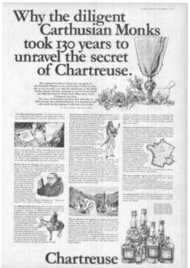Page 10, 2nd December 1966
Page 10

Report an error
Noticed an error on this page?If you've noticed an error in this article please click here to report it.
Tags
Share
Related articles
Prayer And Lay Apostolate
1 Choose....
News Of The French Hierarchy
Cardinal Suhard Enthusiastic For The New France
Trade Unionism, A Fourth Estate, Threatens Liberty
A NEW DAY: OLD WAYS
by James D. Halloran
WE are reminded by Mgr. Chester P. Michael, author of The New Day of Christianity (Helicon, . Baltimore-Dublin, 18s. 6d.), that many years ago Cardinal Suhard called for a new Summa of the old and new knowledge and that the aggiornamento was a response to this—a bringing up to date of our whole Christian Faith.
We are told by Mgr. Michael that this book is an attempt to carry on the work of synthesis of old and new, to bring together grace and nature. The publishers claim that the approach adopted by the author combines the valid wisdom of the centuries with present-day advances in knowledge.
A less charitable way of looking at the book would be to see it as a strange concoction of some of the more obscure aspects of conventional wisdom and some of the more dubious forms of modem psychology. Although Mgr. Michael feels that "the cult of psychology is a particularly dangerous torm of pagan religion" he follows Pope Paul in recognising the need to take cognisance of psychological findings and developments.
What the Holy Father would make of Mgr. Michael's interpretations of this aspect of modern knowledge is another matter. I am sure, however, that Mgr. Michael's approach, as illustrated by the following quotation, would not endear him to psychologists of my acquaintance.
"If our souls follow the more or less average pattern we will experience a period of religious or spiritual enthusiasm somewhere around the age of 20. . . . From time to time we will experience some kind of a crisis either natural or supernatural.
"One of these usually comes around the age of 28,
another about the age of 35 when we enter the second' half of our life on earth; a third crisis will develop about the age of 41"
This is indeed "new knowledge". 1 am not sure whether it is apprehension about my oncoming third crisis or the after-effects of the last one which makes it difficult for me to relate these and many other passages in this book to human growth and development as I see these processes.
It would, however, be unfair to give the impression that there is nothing of merit in this work. Community growth, as distinct from personal growth, is not ignored and in the chapter "On Finding Hope through the Liturgy" the community of worshippers is urged to sacrifice personal tastes and make the liturgy a communal endeavo u r.
But even here, "The New Day of C'hristianity" only takes us beyond the church door in the most general way "Coming forth from our Sunday Mass-we should have the bold spirit of conquerors ready to go forth and do battle with all the forces of evil and overcome them. We are now ready to tackle the problem of life with renewed vigour".
There is no real attempt to deal in any meaningful way with those vital '-external", social aspects of liturgical renewal.
In brief, Mgr. Michael does not speak to the modem condition as I see it. There is no "new day" for Christians here and if spirituality has anything whatsoever to do with social relationships, social interactions and social development in contemporary society then the book does not begin to justify the publishers' claim that Mgr. Michael has given us "a meaningful and readily understood guide to modern spirituality".
Fr. John F. Cronin's book Christianity and Social Progress (Mater et Magistra clarified) is much more down to earth and is quite easily understood — perhaps too easily (Helicon, , Baltimore-Dublin, 21s.). It is a well-written, simple. at times superficial, relatively conventional ampli. fication of the first of Pope John's encyclicals.
Fr. Cronin is not a reactionary. He may even be con
sidered "progressive" in America (incidentally, it would appear that he is writing primarily for an American public), and he is certainly not illiberal in his treatment of such subjects as race relations and aid to developing nations.
Still, there is nothing really radical in this book, neither is there penetrating analysis or searching criticism. The boat is never rocked and on the whole Fr. Cronin plays safe within a fairly orthodox framework.
His treatment of the question of authority is timid, to say the least, and the whole idea of Christian commitment is dealt with in a rather shallow fashion. Marxist thought is condemned or dismissed rather than analysed or discussed, and although Fr. Cronin deals with a world that we know and can recognise one gets the feeling that relating Mater et Magistra to past papal ter thing (including that of Pius XII) is more important to him than developing his analysis to a point where existing structures and basic assumptions are seriously challenged.
The almost complete lack of psychological and sociological sophistication, the failure to draw from the richer and deeper debate on social progress and allied topics which preceded and followed Mater et Magistra, and the overall superficial journalistic treatment make this another book that it is difficult to recommend.
This may be unfair to Fr. Cronin who really only sets out to clarify the encyclical, for up to a point he has done this. We need to bear in mind the possibility that the encyclical itself may suffer from some of the defects listed above. The major criticism of Fr. Cronin might well be in relation to his apparent eagerness to regard Mater et Magistra as having unique and enduring value as a social document.
blog comments powered by Disqus















